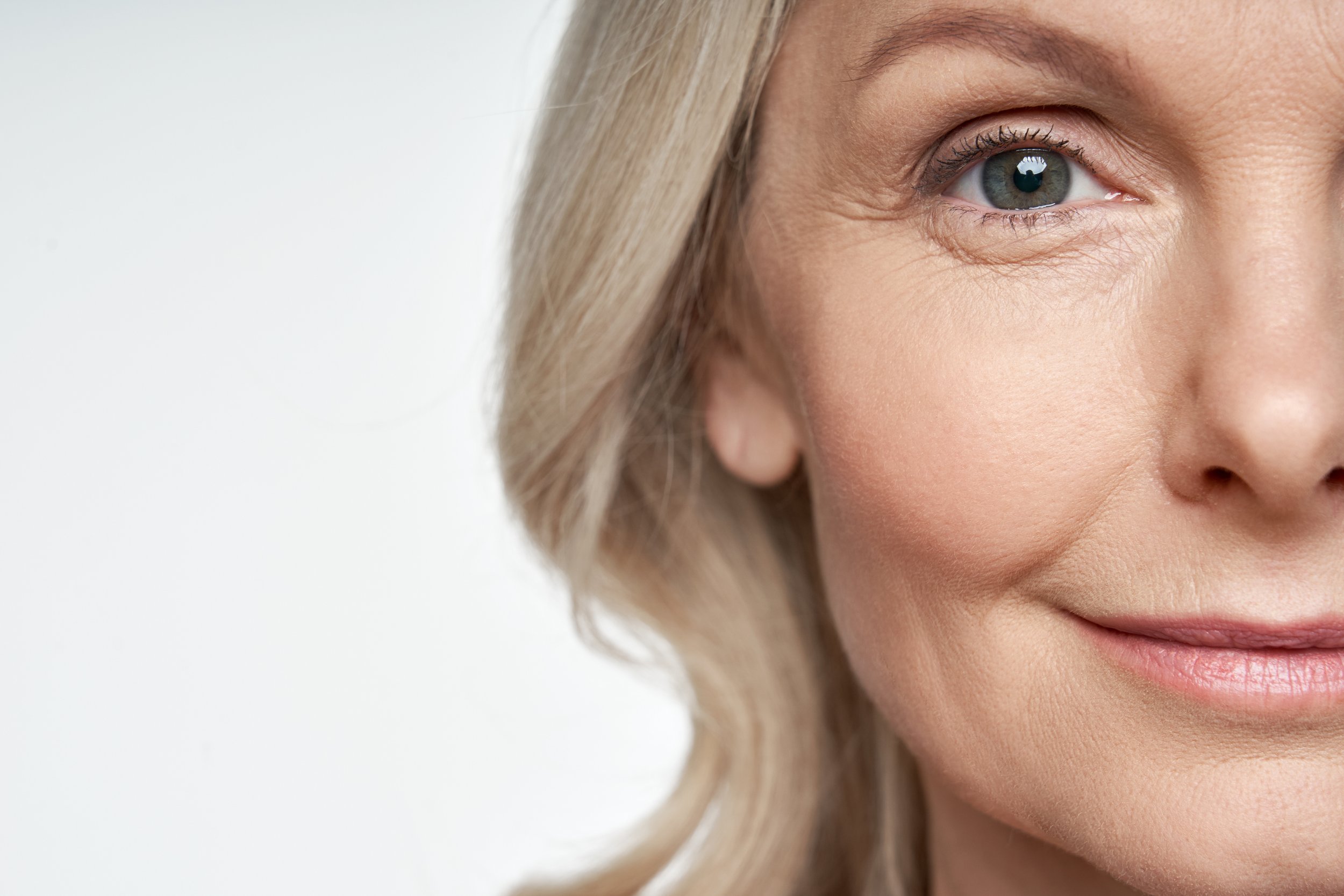
Ageing Skin
Ageing skin refers to the natural changes that occur in the skin over time, leading to visible differences in appearance and texture. These changes are a result of both intrinsic (natural) and extrinsic (environmental) factors.
An accumulation of cellular damage, starting already in our late 20's. Characteristics of ageing include fine lines and wrinkles, trans-epidermal water loss, dehydration, epidermal thinning, collagen loss, flattening of the dermal/epidermal junction and hyperpigmentation - and broken capillaries start to show.
Intrinsic Factors:
Natural aging:
As we age, our bodies naturally produce less collagen and elastin, proteins that keep skin firm and elastic. This leads to thinning, sagging, and the formation of wrinkles and fine lines.
Slower cell turnover:
The rate at which skin cells regenerate slows down, contributing to a duller complexion and slower wound healing.
Reduced oil and sweat production:
Older adults may experience dryness and reduced moisture in the skin due to decreased production of natural oils and sweat.
Extrinsic Factors:
Sun exposure:
Prolonged and unprotected exposure to ultraviolet (UV) radiation from the sun is a major contributor to premature aging, causing wrinkles, age spots, and uneven skin tone.
Lifestyle factors:
Smoking, excessive alcohol consumption, poor diet, and lack of sleep can all accelerate the aging process.
Environmental pollutants:
Exposure to pollution and other environmental toxins can damage the skin and contribute to premature aging.
Common signs of aging skin:
Fine lines and wrinkles:
These develop due to loss of collagen and elastin, and can be exacerbated by sun exposure and facial expressions.
Sagging skin:
Loss of elasticity and skin thinning can cause the skin to droop and sag, particularly in areas like the face, neck, and arms.
Age spots and pigmentation:
These are areas of increased pigmentation (usually brown) caused by sun damage and age-related changes in melanocytes (pigment-producing cells).
Dryness and dehydration:
Reduced oil and sweat production can lead to dry, flaky skin.
Thinning skin:
The epidermis (outer layer) of the skin thins with age, making it more fragile and prone to bruising.
Recommended Treatments
-
IPL Photorejuvenation
This non-ablative procedure uses pulsed light to produce a wound response to stimulation collagen and elastin production to reduce the appearance of fine lines and wrinkles.
-
Skin Needling
Collagen Induction Therapy is a non-surgical rejuvenation treatment that helps to restore collagen and elastin, improving skin tone and texture. This therapy encourages the body to respond by creating new collagen and elastin fibres. As the skin responds, it plumps and thickens, reducing the appearance of scars, wrinkles and fine lines.
-
RF Skin Tightening
A fantastic treatment for tightening loose or sagging skin on any area of the body to produce firmer, more youthful looking skin. By generating heat and applying it to the epidermal and dermal layers of the skin. The heat causes tissue retraction, resulting in instantly tighter and firmer skin
-
DMK Enzyme Therapy
DMK Enzyme therapy is a treatment primarily known for its ability to detoxify and rejuvenate the skin. It is beneficial for various skin conditions including: Anti-Aging, Skin Tightening, Rehydration…

